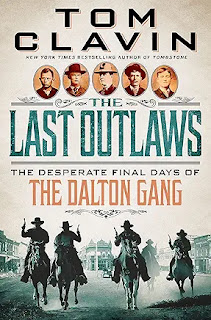Those of us who tuned into NBC's Saturday Night back in the day just to get another dose of John Belushi's craziness (in my case, it was also to see Gilda Radner in action) should not have been surprised by John's sudden death or even the way that he died. But most of us still were. Daniel de Visé's The Blues Brothers, part dual-biography, part show business history, and part cultural history, is a vivid recreation of those times.
Dan Aykroid and John Belushi were destined to become best friends at some point in their lives. The two men followed remarkably similar career paths to the "overnight success" and sudden stardom they seemed to achieve as cast members of Saturday Night. Both were products of comedy clubs, Akyroid in Toronto and Belushi in his home town of Chicago, that featured small groups of improvisational comedians so when they began working together on Saturday Night, the magic came early and it came often.
Surprisingly, it would be the relatively nerdy Dan Akyroid who ended up introducing the more worldly John Belushi to a style of music he knew almost nothing about despite having grown up in Chicago. Belushi was quick to pick up on Akyroid's enthusiasm for the sound, and it was probably inevitable that their shared love of the blues would be reflected on television screens all over America. And that television version of The Blues Brothers band turned out to be so much fun and so popular a concept, that in 1980 it led directly to the outrageously expensive and difficult-to-film movie The Blues Brothers, a movie that is now considered to be a true film classic.
The success of The Blues Brothers movie made the pair, but especially Belushi, such hot stars that Belushi's already problematic relationship to alcohol and drugs grew to out-of-control levels that began to threaten his marriage, his ability to work, and his life. Despite the efforts of those who knew him best, there was no going back for John Belushi.
Fans of the movie (and the musical genre) will be especially pleased to see how many pages the book devotes to the making of The Blues Brothers. The utter destruction and chaos endured by the city of Chicago during its filming is so unbelievable that it is difficult to believe that it was ever allowed to happen. This was an incredibly expensive and difficult movie to make, but even after expenditures reached a point of no return, the millions of dollars kept adding up to the extent that recovering even the cost of the movie seemed impossible to studio executives. The Blues Brothers was an important movie in another sense; it jumpstarted the waning careers of some blues regulars who were barely hanging on in 1980. Ray Charles, Cab Calloway, Aretha Franklin, and James Brown found a whole new generation of fans, and some would go on to enjoy the most lucrative years of their entire careers.
Reading The Blues Brothers is a little like watching a massive train wreck in slow motion, but the book is packed with so many details and stories that Blues Brothers fans are certain to be intrigued by what they learn from it.
 |
| Daniel de Visé publicity photo |




















































